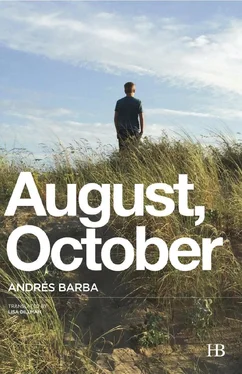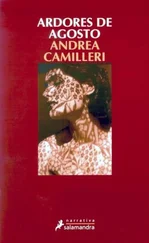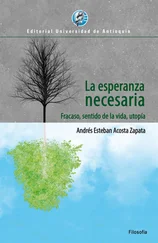“Leave her,” he says, “she won’t say a word.”
And in the memory it’s as though after Rivero speaks, everything fades away; the esplanade by the dock, the houses lit in the yellowy light of street lamps, the sound of people still making merry at bars and cafés, the distant glimmer of the estuary, the tinkling of boats — all of it fades into a sort of faint, gray light. Does he say goodbye to them, or does he not? He doesn’t even know. None of that is included in the memory; in the mishmash of things in the memory, there is even a different light, as though a new day were rising as he walked, alone, into town, and the people he passed were all very freshfaced. Not even when he walks into the house, when his mother asks him where he’s been, is he capable of speaking.
“You’ve been drinking,” she says.
“No.”
“You’ve been doing something — tell me what you were doing.”
And she follows him to his room.
“I wasn’t doing anything .”
PART TWO. MEMORY OF OCTOBER
He would say, “Boring, like every other summer.”
He would say, “One day, at the beach, I almost drowned.”
He would say, “My aunt Eli died, right at the end.”
The rest, he kept to himself.
He’d become a pensive young man. He had never been particularly popular in class, and that was still true at the start of the new school year. It was odd the way Madrid had the ability to absorb things, the efficiency with which everything was subsumed in the monotonous blinking of traffic lights, in the afternoon light — first white and crisp and then vaguely pastel. There seemed to be no pain or sorrow the city could not swallow, swaddling it in thin, transparent layers until it was muffled, though not gone. The city had a belly full of rocks.
His mother told them they had to help their father through this trying time. His father had become a quieter person, too, as though Aunt Eli’s death had imbued him with a meekness he’d never before possessed. His health had declined a bit, and sometimes he had mood swings. Some sort of stomach trouble, a dull ache, useless and persistent, that lasted a whole month. When he wasn’t in a bad mood, he became sentimental.
“I love you so much, kids,” he’d say out of nowhere, in the middle of dinner, giving rise to an uncomfortable silence. He told them he loved them not as though it were a joyful proclamation or a way to erase something from the past but as though it were an ill-fated attachment, one binding them together in present and future, a way to share the road to emptiness. He himself felt a mixture of compassion and irritation; sorrow had made some of his more masculine traits dissolve.
During that first week, his own brain seemed to prevent him from thinking about what had happened. Then, from one day to the next, he got scared. He was walking down the street with Anita; it was a Sunday, and their mother had sent them down to buy the paper. The weather in the city was still balmy, and people were sitting out at sidewalk cafés. Anita was explaining to him, with surprising precision, how much she hated one of the girls in her class. They sat on a park bench, and for a minute he was unable to process what his sister was saying, he became completely self-absorbed momentarily, and then got a strange wave of vertigo. He could hear the water in the park’s fountain in the distance — the sound of droplets gurgling out of the sprinkler head — and the mud encircling it, and the trees, and all the people. . he didn’t know how to explain it, it was as though suddenly they were all too close to one another, horrifyingly close, or imbued with something sickening. And so was he, slack and languid and viscous, and even Anita — everything slowly, senselessly rotting away. It was a type of fear he’d never before experienced, bare and perfunctory, shapeless, making him almost want to leap up from the bench where he sat and hurl himself under the first passing car. Anita asked him if he felt OK.
“You’re all white,” she said (Anita used only colors to describe moods: white, red, green, yellow).
“I know.”
That was the first time. Over the next two weeks, it happened three more times. It wasn’t the kind of fear brought on by a concrete, identifiable object, more like a state, a sort of festering of things. And there was no way to stop it from coming or even predict when it would appear. It just erupted, like sudden anguish, like some colossal finger pointing at him and making him recoil.
Little by little, he began to recall the episode with Marita, almost always at night, or when he was alone in his room doing homework. He’d start to zone out, his gaze hovering over the letters in his textbook as though dissolving them, and then her face, or something like her face, would appear there. He remembered being in the dunes, remembered the presence of Pablo, Marcos, Tejas, and Rivero. He remembered, more than anything, his own cowardice. Then came the whiteness of Rivero’s ass, that ass wriggling and contracting like a slug, but not like it was on top of Marita, more like it was penetrating something fragile and delicate, a crystal glass or a little girl, and it was like he might still be there and something inside him were screaming— What am I going to do now ? Then he’d get the jitters, a sort of dull vibration and an incessant urge to still be there so he could wrench Rivero up by the arm, shove him, punch him. It wouldn’t matter if they beat the shit out of him after that — beat him and beat him and beat him. He’d get up from the chair where he’d been working and, if he was home alone, open the closet and punch the wall, and then again, in an attempt to draw blood. After the hysteria would come uneasiness and melancholy. His soul had been stretched taut as a rubber band, and then from one second to the next it was released, snapped inside. He’d say aloud, “I’m a coward.”
He said I’m a coward not as if it were a simple description but as if it were his most essential attribute, as if it were his true nature. And when he looked in the mirror, he no longer thought Tomás has brown hair but the coward has brown hair , and if he was hungry, the coward is hungry , and if he was tired, the coward is tired .
His fourth week back was the most excruciating of all. It started with a recurrent dream — him, sitting by the seafront, back in the beach town, with Anita. They were upbeat, relaxed, and jovial, until Rivero came along. It was very hot in the dream, a muggy, unpleasant heat. It was all so real, profound, interesting; it had the same delicate quality as certain summer afternoons. Rivero’s presence at first went unnoticed. Then from one second to the next, he was taking part in the conversation, too, asking Anita questions. And then suddenly he’d say, “Suck my dick, Anita.”
Or maybe, “Take off your panties, Anita.”
Then he’d watch him lay down on top of her, but he himself would remain motionless, right there beside them, unable to move. That was when his memory of the dream slowed inexplicably, as if Rivero and Anita were two frozen shapes, sculptures maybe, and he felt cornered, trapped, unable to reach them; the air was thick, and all he could do was crouch down beside them. He looked at Anita’s face. It was the same face she’d always had, maybe a bit more inexpressive than normal, she had those tiny features he had so often adored, those little eyes, round as two coins, and her body was moving at regular, rhythmic intervals as Rivero’s body slapped down on top of her. Then, suddenly, Anita’s face sparked in him a kind of inexplicable revulsion. Revulsion as if something in it had vanished, or something had been poured over her. He’d wake up.
Читать дальше












